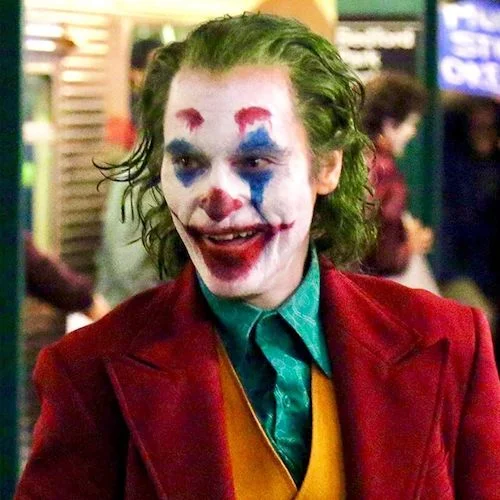Treating Socially Polarizing Films
So, Todd Phillip's Joker is almost here, and it has received the kind of attention we predicted. Joaquin Phoenix is on route to winning an Oscar until the next season shake up happens. The film itself has been polarizing: labeled either a hysterical tragedy, or the validation of radical behaviours found amidst the "incel" community. As stated above, we have not seen the film yet, but will have a review as soon as we do. We currently have no opinion on the film. We're just asking the big question: should films deemed negative influences be censored? Seeing how the lead up to Joker's release has sparked many debates and even police involvement, we may need to swallow the pill of uncomfortable truth. A single film does not instil the entirety of one's behavioural patterns. Yet, a film can easily be misinterpreted as the final piece of evidence one needs to continue forth.
The truth is every single case needs to be examined differently. Films should not have to be gutted because of what they may or may not do to any viewers. However, there are rare cases where art has been pegged. Mark David Chapman insisted J.D. Salinger's The Catcher in the Rye was why he followed through with his assassination of John Lennon. A political scare happened when someone wanted to mimic Travis Bickle's own terrorizing antics in Taxi Driver. Don't even get us started on music, and how often albums have been brought up in the face of evil. You already get the idea. We don't need to bring up every example.
Travis Bickle is a cinematic staple, but he is by no meant to be an inspirational hero.
Art that comments or presents a pressing, dangerous issue should not have to be silenced. Discussing a problematic person through an artistic lens does not equate to glorification. I would dare anyone saying Taxi Driver is an encouragement to watch it again and point out where exactly Bickle is actually a hero. Even in his best pursuits, those he tries to help are in danger, and traumatized. The only time he's a hero is in his own mind. Bickle is the revelation of a problem, not the insistence that we're misjudging some idol.
Again, we have yet to see Joker, so maybe these claims of glorification are true. If you want to go really far down the deep end, I will provide an example of a shockingly tone deaf film. Mordum (a film in the August Underground series) is a torture porn film so shocking, co-creator Fred Vogul was arrested trying to bring the film into Canada for a horror film festival. Mordum is shot to look like discovered real footage of various serial murders and other despicable crimes. This is what I mean. The main villains barely get into any sort of trouble, outside of a melodramatic, stupid deus ex machina of an ending (simply to get the film to end). Otherwise, it's nothing more than a series of images meant to make you feel sick.
What's the purpose there? What actual analysis of troubling minds are found in this film? For all I know, Joker may follow a similar path, where poor reasons (or no reasons at all) are provided for the titular character's descent into depravity and a state of psychosis. Yet, judging from a lot of the first reactions by critics at the various film festivals Joker has played in, there seems to at least be an effort. With the integrity alone, that at least proves Joker was made with the best intentions. Now, is it actually an instigation piece, or are people over reacting? I guess you will see how we feel in a few days.
Walter White from Breaking Bad is also not someone to be admired, but a character to be analyzed instead.
For now, I do think censoring films with the right intentions is silly. A complicated topic shouldn't be immediately dismissed. However, there are legitimately dangerous films, and narratives created to instil hatred. Luckily, most films of that nature get canned well before they get theatrical releases. I can understand those that feel negatively about this Joker film, and why they may feel it gets a pass because of its profitable and recognizable lead character.
Again, the only way to deal with problematic films is through a case-by-case analysis. I cannot tell you the film has issues, because I have yet to see it. Pouncing on films before you see how they truly are is not going to help anyone. The other main thing to remember is that not every film is meant to entertain. Schindler's List is a whirlwind of a film, but I would not classify it as entertaining in any sort of way. That's a mainstream film, too. Is the massively abstract The Colour of Pomegranates entertaining? What about the heavy and thought provoking All Quiet on the Western Front? What about shows like South Park or It's Always Sunny in Philadelphia? Yes, those are entertaining for sure, but usually with extreme context, and at the detriment of the hateful people that lead most of the episodes. You laugh at these characters more than with them, really.
It's impossible to gloss over this discussion. All we can do is examine every new instance and see which cases hold weight, and which are full of hot air. At the end of the day, careful parenting (this also includes having difficult conversations to educate), open minds, and full consideration will make these debates easier to wrap around. Of course you can hate and disagree with a film. You can do that whenever you want. You don't have to like Joker. Hell, we don't even know if we do yet. However, sanitizing artistic voices just as a precaution is not the way to go about various scares. Troubled people have had way more influence than a 500 page book, a two hour film, or a three minute song can provide the entirety of.
One variable makes Joker seem to be more daunting than your usual film of this nature, though, and that is the main reason why I completely understand the actual discussion taking place. Joker doesn’t seem to inspire people, as much as it justifies, according to disgruntled guests that have already seen it. There likely aren’t many people wanting to be the Joker character, but this type of a heavyweight narrative in a politically charged time can definitely feel like it’s a part of something that’s already ongoing (then again, so is any film with difficult social debates within it, because where else would the ideas stem from?). Is Joker trying to give previous real-life behaviours a pass? To reflect once again on Travis Bickle, the featuring of a problem is not the same thing as the championing of a problem.
We will continue this discussion once our Joker review is up. In case it wasn’t obvious, it’s actually nearly impossible to even make a coherent claim without having seen the film. I guess — amongst all of my rambling — I wish to clarify that art is absolutely debatable, but it has to at least be attempted before we can make arguments with proper weight. For all I know, I could love Joker, or I could despise it. I can be entertained and still find it problematic, or I can find no danger here. I could also find it pointless, but harmless. Opinions stem from experience, and sitting down to actually watch something will not only help you with your argument (or win you over), it will also help you wrap your head around an issue altogether.
Andreas Babiolakis has a Masters degree in Film and Photography Preservation and Collections management from Ryerson University, as well as a Bachelors degree in Cinema Studies from York University. His favourite times of year are the Criterion Collection flash sales and the annual Toronto International Film Festival.




